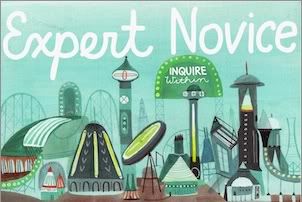
It was easy to let myself be vulnerable when my problems felt more admirable. As real as term paper panic felt in college, as difficult as it was to forever be struggling to live up to my own expectations, I at least had some sense of perspective. Expressing those fears, I could tell myself, allowed me to connect with others without really risking anything. Because what was I actually revealing? Only that I could afford recreational worry; life, in general, was in order and moving forward.
And then, my brother died. But even in the midst of misery, I felt a surge of recognition that his story needed to be told, too. At the time, everything was so dark that I had another kind of perspective altogether: writing about his death and the circumstances around it could never hurt me more than the fact that he was gone. So I was honest and it was painful, but that honesty also elicited empathy I desperately needed. I felt loved and reassured, even as I felt exposed.
As I tried to return to San Francisco, though, and a new beginning that had been violently interrupted by events beyond my control, I started shutting down. Everything still felt raw and I didn’t hide that from the few people closest to me, but I was also anxious to experience some semblance of normalcy. And normalcy meant not being so vulnerable; words I wrote in public became quieter, more oblique. I would post pictures of happy moments or publish fragmented, impersonal observations, but I had an incredibly difficult time articulating anything that felt true. In fact, the truth was this: I was already so vulnerable that “letting myself be vulnerable” felt like a hilarious oxymoron. At my best moments, what I let myself be was not “vulnerable,” but calm.
Yet the past few months found me restless. As I started to recover a desire to write but wrestled with finding words, I somehow misremembered what I loved about writing in public in the first place. “It was because everything was easier back then,” I would think, and reflect fondly on recreational worry and the long-gone luxury of thinking that maybe someday everything would be perfect. Thinking about it more, though, I’ve realized that’s not it at all. Things were hard then too, and I never shied away from that; it’s just that my difficulties felt more aspirational than basic. I at least felt sure that moving through those difficulties—understanding complex topics, discovering and articulating new knowledge, learning how to build relationships with others—would bring me closer to the person I longed to become. After Spencer died, though, that energy of proximity instantly became a distant memory. In its absence, I fumbled to accept that I’d somehow taken about a hundred steps backward—that I could no longer handle the simplest challenges with grace. And as hard as that was to experience, incorporating it into the way I represented myself felt approximately impossible. So I focused on what seemed knowable, tried to pick up the pieces, worked to stay connected to my family and a handful of close friends. Otherwise, I didn’t say much at all.
But that restlessness that crept in? I couldn’t name it until today, but I think I’ve been missing the connection that used to follow from letting myself be known, fearlessly and openly. It’s true that being fearless felt easier when there was less to be afraid of, but I’d like to work back toward being courageous in the only context available to me: the world I live in now.
The truth is, it’s a beautiful world. I live with someone I love, and every day we get to laugh and wonder together. San Francisco became home more quickly than I ever could have hoped. This year, my brave friends stared down mono with humor and courage and bicycled home in New Orleans at night. My brother Jordan dug deep and found a way to reach new heights academically, even as grief remained a stalwart companion; as he looks toward college, the world is more open to him than it’s ever been, and he’s more open to it. My parents have worked to replenish and lovingly renew the life and home they have, rather than racing to the ends of the earth seeking something new or a chance at escape.
As for me, I’ve learned a mix of hard and encouraging truths about myself at work and at rest; neither state comes as naturally to me as I’d like it to, but I’ve started to more gently accept that not everything has to happen at once. My hope for the new year, instead, is simply that things happen one after another and that I can approach them with honesty and curiosity. This is a resolution I can hold close.
With gratitude to Brené Brown for her life-shifting book The Gifts of Imperfection, and to the people I love for loving me in return.



1 comment:
good to read you back.. ATB for the year ahead :)
Post a Comment